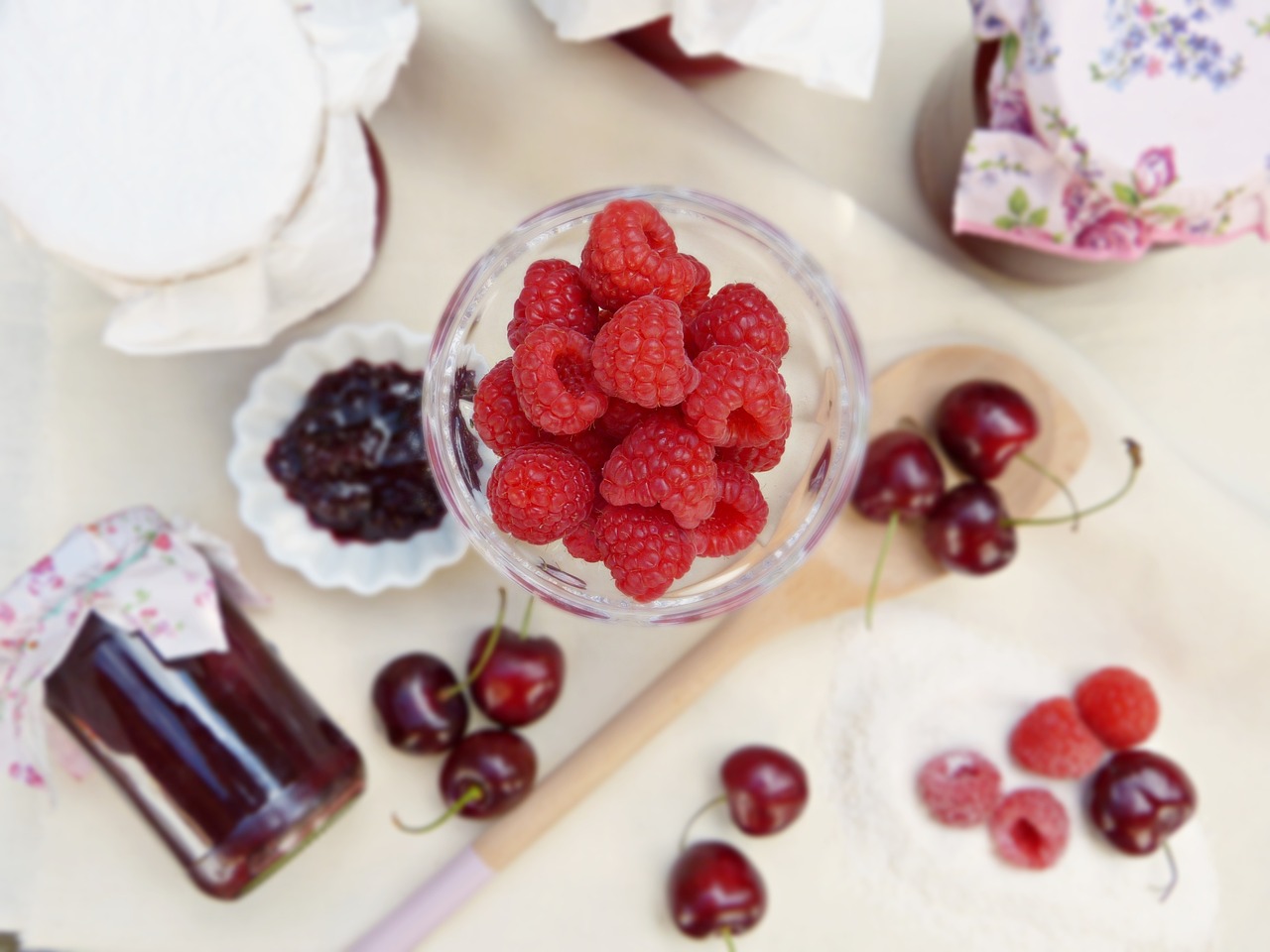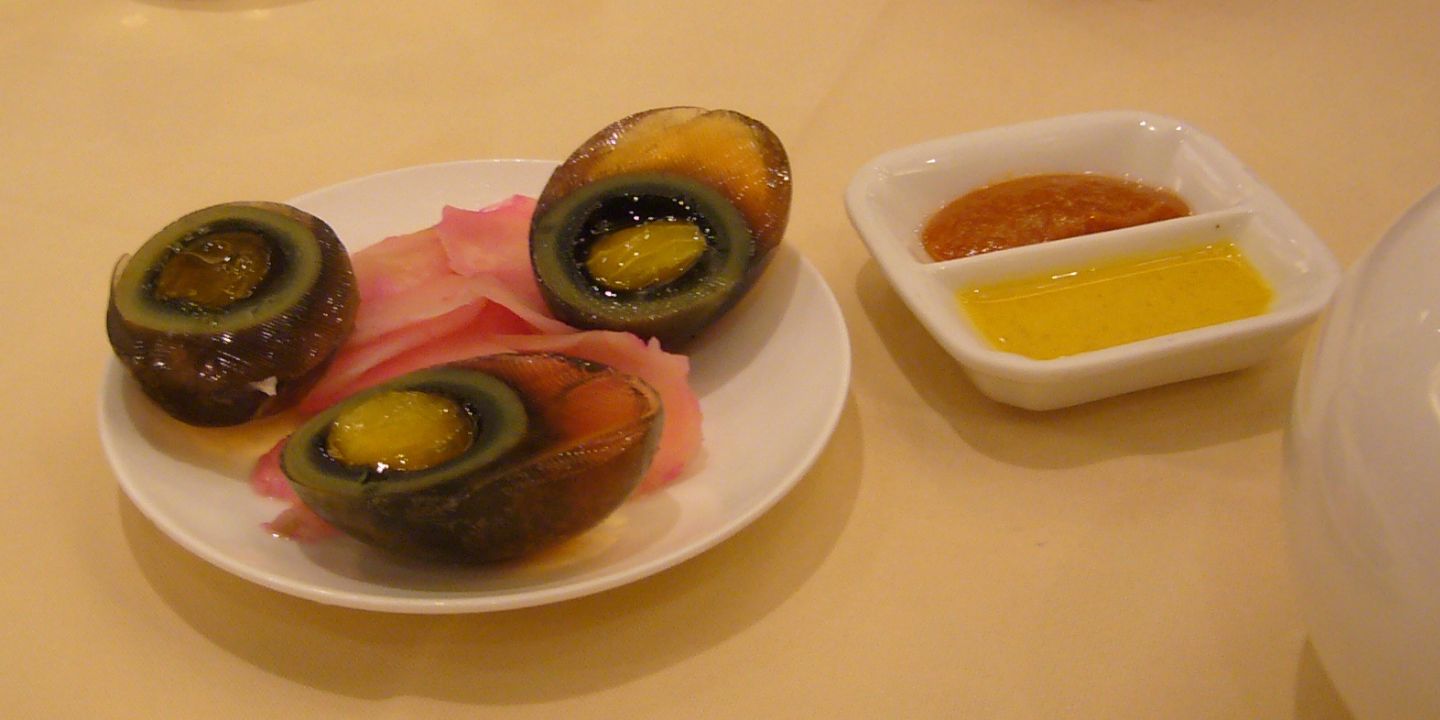There’s no question that all dog owners share an unbreakable bond with their pets. They’re not just animals, they’re valued members of the family, beloved by each and every member. But although we love to spoil them, it’s a dog owner’s responsibility to provide them with a proper diet. Dogs, like humans, require a balanced diet to maintain good health. An important distinction to note here though is that certain foods we consume daily can actually be harmful - even lethal - to our favourite dog friends. So to avoid these dangers and prevent unnecessary harm, here are five foods you should never feed your dogs.
1. Chocolate
A commonly known fact is that you should never feed your dog chocolate. Chocolate contains theobromine, a compound that dogs can not metabolize as effectively as humans. Darker chocolates and baking chocolates contain even higher levels of theobromine, posing an even greater risk. When ingested in significant quantities, it can lead to hyperactivity, restlessness, vomiting, diarrhea, increased heart rate, seizures, and in the most severe cases, death. The severity of the reaction depends on the size of the dog and the amount of chocolate consumed, but regardless, it should always be avoided at all costs. If you suspect your dog has eaten chocolate, you need to immediately see a veterinarian.
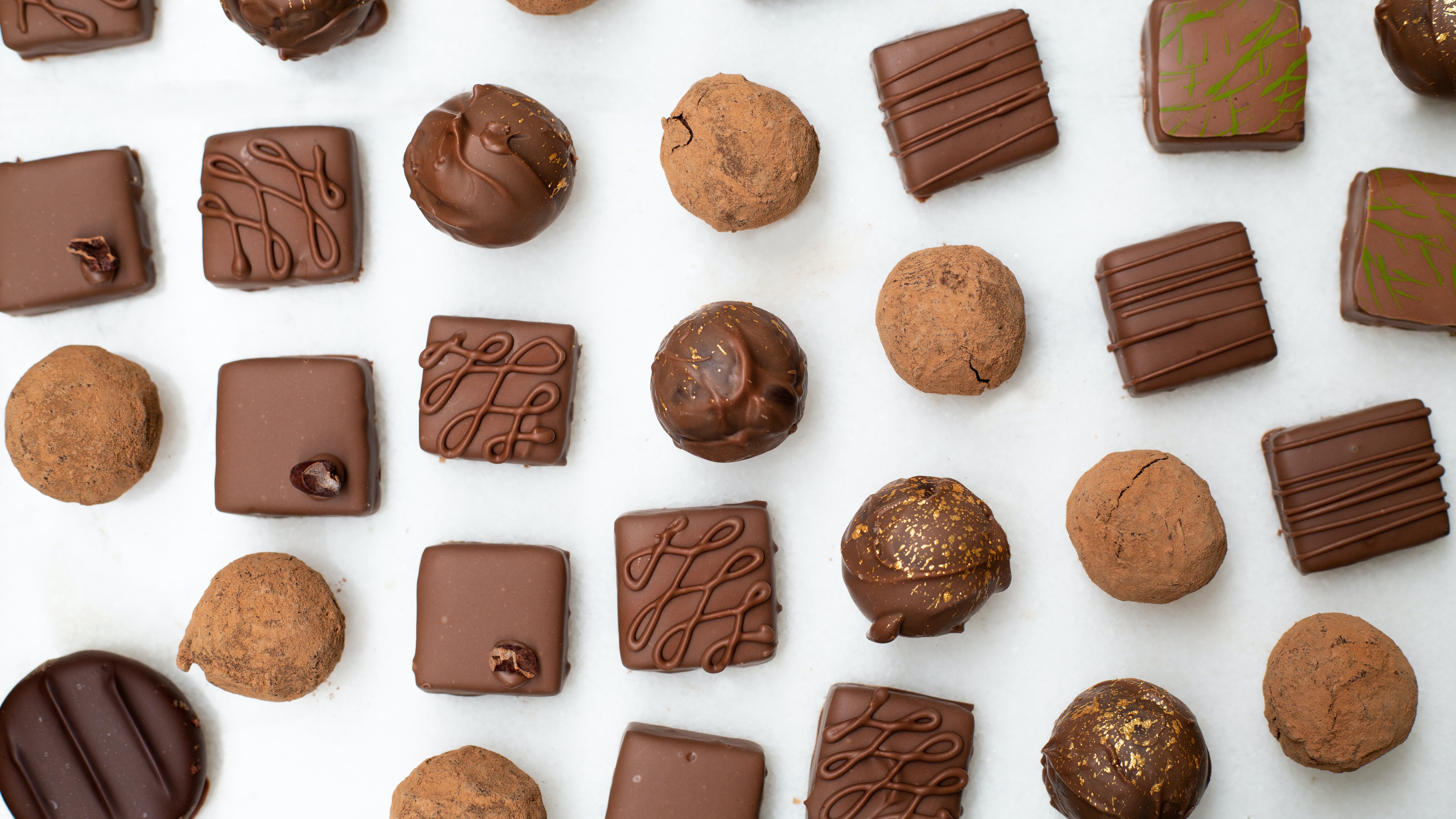 Photo by Jessica Loaiza on Unsplash
Photo by Jessica Loaiza on Unsplash
2. Grapes and Raisins
Grapes and raisins are highly toxic to dogs; the tartaric acid in these foods is highly dangerous, with even small amounts of consumption causing severe kidney damage, leading to potential acute kidney failure. Some terrifying symptoms can include vomiting, diarrhea, lethargy, loss of appetite, decreased urination, and abdominal pain. If there’s even a slight chance your dog has consumed either grapes or raisins, seek medical assistance at once.
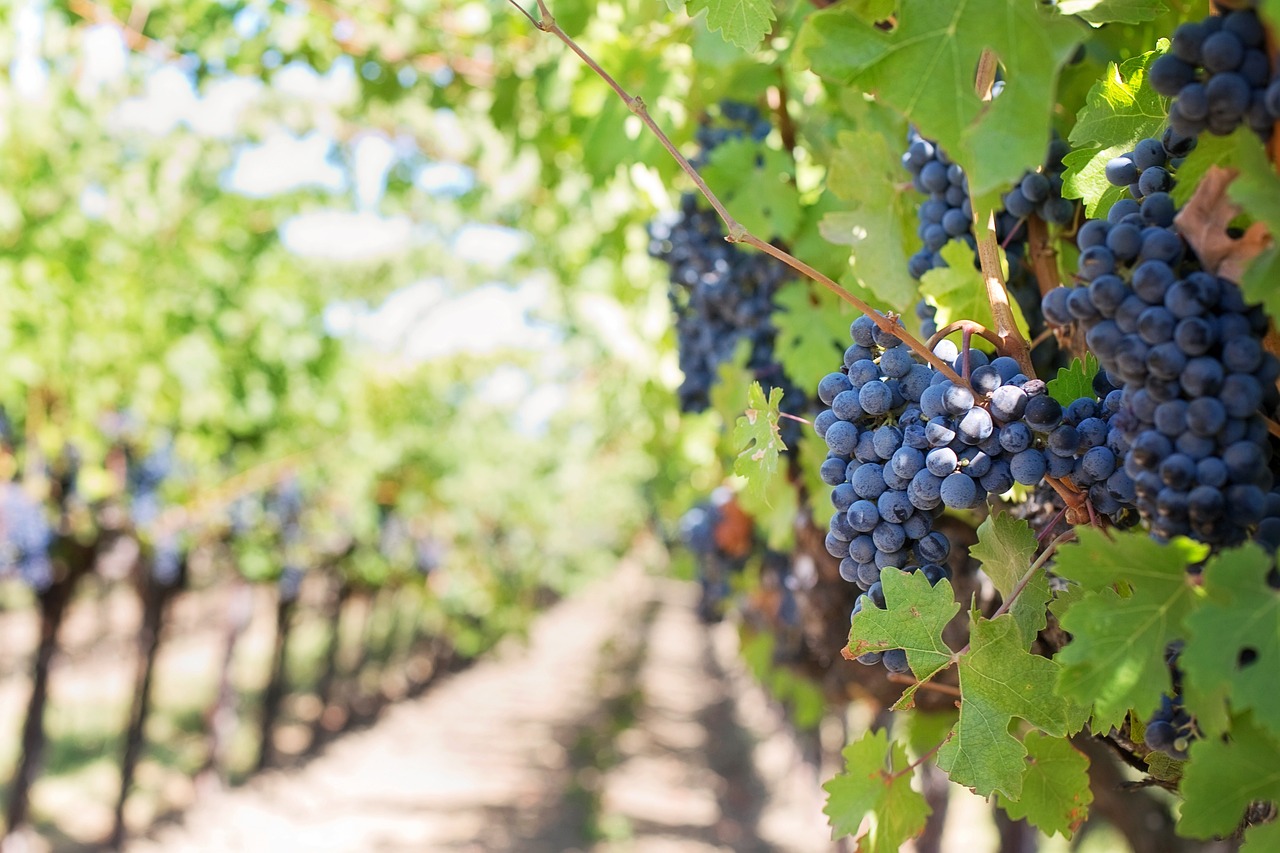 Image by Jill Wellington from Pixabay
Image by Jill Wellington from Pixabay
3. Onions and Garlic
Members of the allium family, including onions, garlic, leeks, and chives, are all toxic to dogs and needed to be carefully avoided. They contain thiosulfate, a compound that dogs can’t digest properly. When dogs consume these foods, it can cause oxidative damage to their red blood cells, leading to a condition known as hemolytic anemia. Symptoms of this include weakness, lethargy, pale gums, faster heart rate, and collapse. While cooked forms are less toxic, they can still pose a risk that isn’t worth testing. It’s definitely safer and smarter to avoid these foods in your dog’s diet altogether.
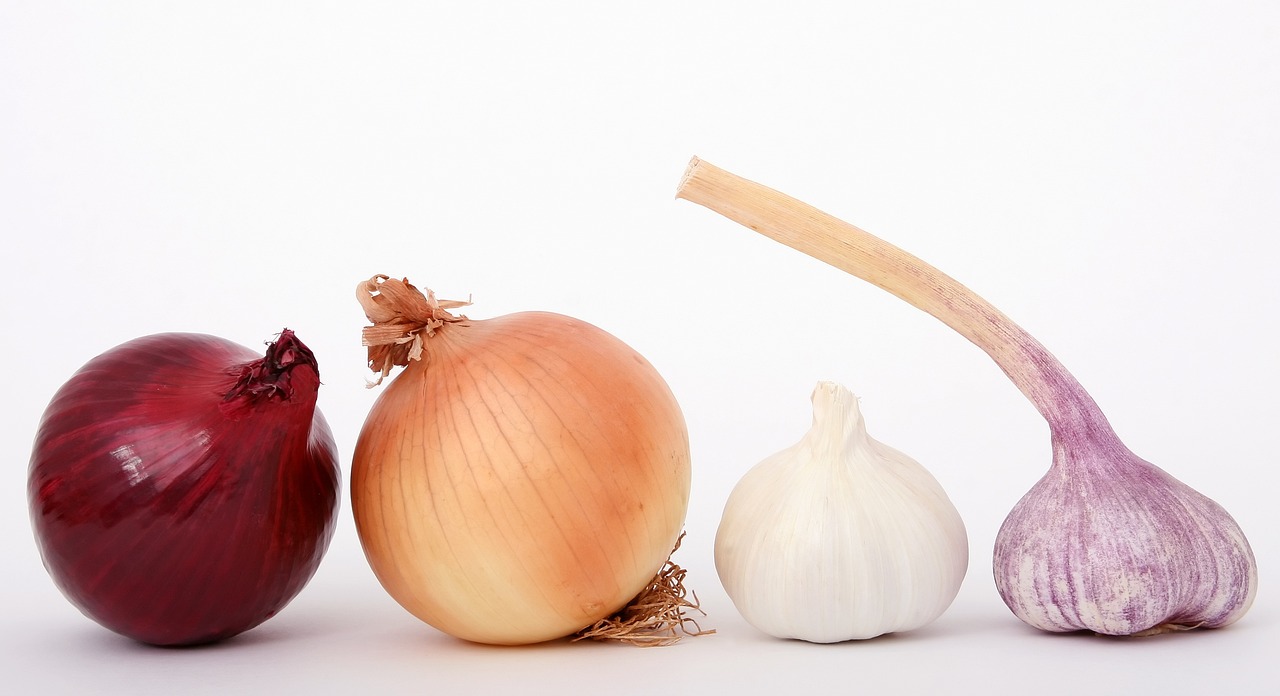 Image by Robert Owen-Wahl from Pixabay
Image by Robert Owen-Wahl from Pixabay
4. Xylitol
Never heard of Xylitol? It’s much more common than you think - found frequently as a sugar substitute in many candies, chewing gums, baked goods, and even some peanut butter, Xylitol is extremely harmful to dogs. When dogs ingest it, it can lead to a rapid insulin release, causing a dangerous drop in blood sugar levels, a condition known as hypoglycemia. Symptoms of this condition include vomiting, loss of coordination, lethargy, seizures, and in the most extreme cases, liver failure. Now knowing this information, you should always be checking the ingredient list of products before giving them to your dog.
5. Alcohol
This item on the list should be evidently easy to understand why it’s dangerous for dogs. Alcohol and any foods containing alcohol can have the same effect on dogs as they do on humans - impairing motor control and causing depression of the central nervous system. However, dogs are even more susceptible to alcohol poisoning due to their smaller size. From vomiting to diarrhea, difficulty breathing, tremors, abnormal blood acidity, and even coma or death, it’s obvious that you need to keep alcoholic beverages far away from the reach of your dogs.
 Image by Photo Mix from Pixabay
Image by Photo Mix from Pixabay
Although your favourite furry pal might be giving you the cutest puppy dog eyes ever, you need to know when to say no. Our dogs may seem interested in everything we eat, but it’s essential that we keep dangerous foods completely out of the way for them. If you’re ever uncertain about specific foods, always contact and consult with your veterinarian for sound advice. Let’s always keep this list in mind so we can keep our beloved dogs healthy and happy!


